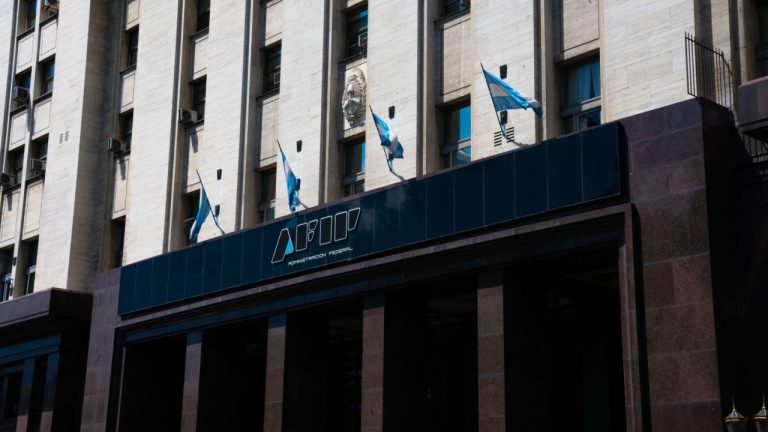 The Reserve Bank of Zimbabwe (RBZ) has said it will start issuing gold-backed digital tokens on May 8. The first phase of the launch will see the digital tokens being issued for “investment purposes with a vesting period of 180 days.” The RBZ also revealed that the gold-backed digital tokens “would be used both as […]
The Reserve Bank of Zimbabwe (RBZ) has said it will start issuing gold-backed digital tokens on May 8. The first phase of the launch will see the digital tokens being issued for “investment purposes with a vesting period of 180 days.” The RBZ also revealed that the gold-backed digital tokens “would be used both as […]
“I gave up my title as CEO to unfreeze these accounts and am also in danger of being in contempt of court,” said Ray Youssef.
The chief executive officer of peer-to-peer crypto marketplace Paxful has announced the unfreezing of 88% of previously frozen user accounts more than a week after suspending operations.
In an April 16 Twitter thread, Paxful CEO Ray Youssef said roughly $4.4 million in frozen funds remained on the platform after staff had unfrozen 88% of existing accounts. According to Youssef, the unfreezing of accounts had been accomplished “with no engineers or compliance folks,” claiming all remaining frozen funds were “in the hands of” United States financial regulators.
Youssef said though roughly 3% of total user funds were still frozen, he had made the unfreezing his “final act” as Paxful's CEO:
“I gave up my title as CEO to unfreeze these accounts and am also in danger of being in contempt of court,” said Youssef. “That is what I did besides a lot of sleepless nights. Nothing more I can do but sleep well tonight. Integrity trumps risk.”
4.4m of frozen funds remain in Paxful, about 3.3% of total customer funds. We freed a total of 3m this year thru tremendous compliance effort. Those who would say that I am somehow destroying my reputation to steal 4m bucks are mad. I don’t have a price 4million or 4 trillion. pic.twitter.com/MU6GdUweZF
— Ray Youssef (@raypaxful) April 16, 2023
Related: Paxful shutdown hits Nigeria harder than the rest of the world — Here’s why
The "contempt of court" claim was likely related to ongoing litigation between Youssef and Paxful co-founder Artur Schaback, who helped launch the platform in 2015. Schaback claimed in court the company had been involved in the misappropriation of funds, money laundering and evasion of U.S. sanctions. Youssef told Cointelegraph at the time the allegations were “ridiculous.”
The announcement followed the suspension of operations for Paxful users on April 4. At the time, Youssef said there had been some “key staff departures,” citing “regulatory challenges” the platform was facing. The CEO had already authorized refunds for Earn program users affected by the collapse of Celsius months prior.

Two major P2P platforms announced their closure in the first quarter of 2023. Many blame it on growing regulatory scrutiny, but experts call for better alternatives.
A peer-to-peer (P2P) cryptocurrency exchange is an online marketplace that connects buyers and sellers of cryptocurrencies like Bitcoin (BTC). The platform enables them to conduct direct business with one another without the need for intermediaries.
When purchasing cryptocurrency on a P2P exchange, a buyer transfers the agreed-upon amount from their account to the seller. The payment is not made between a consumer and a money services company but between two distinct customers.
P2P exchanges were once the lifeline of the crypto ecosystem, owing to the ease of exchange and privacy features that these platforms offered. However, in 2023, some of these key features have driven them to fall under increased scrutiny from regulators.
On Feb. 9, 2023, Finland-based P2P exchange platform LocalBitcoins announced it was closing after 10 years in service. The platform cited tough market conditions owing to the ongoing crypto winter, along with increasing regulatory pressure and declining market share.
The abrupt closure of one of the oldest P2P Bitcoin trading platforms came within weeks of the United States Financial Crimes Enforcement Network (FinCEN) naming the platform as one of the largest Bitcoin counterparties to the Russian-affiliated exchange Bitzlato.
Bitzlato was the target of a significant enforcement action by U.S. officials who accused the platform of violating of Anti-Money Laundering rules and aiding in the evasion of Russian sanctions.
Another prominent P2P Bitcoin exchange platform Paxful, founded in 2015, suspended operations on April 4. The platform cited the ongoing regulatory environment and staff departures as the reason behind its closure. In a Twitter space, CEO Ray Youssef dwelled more on their decision and said even though American regulators have done a lot of catching up in the past five years, they “still don’t get it. They grow more suspicious every day.”
An update from @paxful pic.twitter.com/X3eN5OcKrT
— Paxful (@paxful) April 10, 2023
The ongoing court battle between Artur Schaback and Youssef over the control of the firm was also seen as a prominent reason behind its downfall. According to court filings, the two co-founders are currently at loggerheads over who will manage the business and have made a number of charges against one another. The accusations include, among other things, the theft of corporate finances, money laundering and circumvention of U.S. sanctions on Russia.
In an interview with Cointelegraph, both Schaback and Youssef continued their blame game and pointed fingers at the other person. Youssef claimed his co-founder’s legal tactics “bordered on terrorism” and cost Paxful many employees and directors. On the other hand, Schaback said Youssef took unilateral action to shut down Paxful on April 4, and he had no say in the day-to-day operations of the company for almost 18 months.
Recent: Crypto in Europe: Economist breaks down MiCA and future of stablecoins
Richard Mico, chief legal officer of global on- and off-ramp crypto platform Banxa, told Cointelegraph that the breakdown of relationships between the co-founders resulting in litigation could be one of many reasons behind the downfall of Paxful. He added that the ever-evolving regulatory scrutiny in the U.S. had made it difficult for the decentralized crypto platforms and P2P exchanges to thrive:
“Paxful has faced regulatory scrutiny in the past over claims of money laundering and fraud on its platform. In May of 2021, the New York State Department of Financial Services (NYDFS) ordered Paxful to bolster its KYC/AML processes. It is very possible that Paxful is fearful of future ongoing investigations and remediations,” Micro told Cointelegraph.
He said that, aside from concerns over shifting regulatory requirements, market conditions are driving significant consolidation in space. However, he is hopeful that “more transparent regulation in the U.S. will enable both P2P and other exchanges to flourish in a manner that strikes the appropriate balance between consumer protection and innovation.”
P2P platforms have been instrumental in flourishing crypto adoption especially in developing nations and offering banking services to the unbanked. Paxful was a pioneer of crypto adoption in Nigeria, and its shutdown hit many users in the country hard.
Freelancers often used the platform to convert their wages to and from Bitcoin and make payments to each other, while traders made use of its escrow service to conduct business. As such, the closure has left many of these users in Nigeria wondering about the future of the domestic crypto marketplace.
The Indian government imposed a banking ban on crypto exchanges in 2019 cutting all banking facilities to such exchanges. However, WazirX, one of the early crypto exchanges in India, introduced its P2P platform to ensure people were still able to trade their assets. Indian crypto traders turned to P2P platforms again in 2021 after the government imposed a hefty 30% tax on crypto transactions.
Former WazirX CEO Nischal Shetty seemed more optimistic about the future of P2P platforms, particularly in the developing world. He told Cointelegraph that P2P platforms with proper Know Your Customer protocols “help onboard users, especially in developing countries without banking access, and will continue to exist.”
Nick Saponaro, CEO of decentralized payment platform provider Divi Labs, told Cointelegraph that the closures will be painful for unbanked and underbanked traders, hindering their ability to transact locally and globally.
“Countries like Malawi, where citizens are well-capitalized but have restrictive banking practices that only allow customers to withdraw a few USD daily — P2P exchanges are necessary for those individuals to interact with the global financial infrastructure,” he explained.
Ben Jorgensen, co-founder and CEO of Web3 interoperability platform Constellation Network, told Cointelegraph that the closure of P2P platforms is, unfortunately, a massive blow to developing nations, but most likely, these developing nations will see more and more native P2P exchanges crop up.
The declining popularity of P2P platforms and the recent closure of some of the oldest P2P platforms are also attributed to the new availability of better alternatives, as there are now more practical on-ramps that enable users to buy cryptocurrency using their bank accounts and credit cards.
The costs of doing business are also important. For example, exchanges like Coinbase spend millions of dollars just to comply with local regulations. The unbanked communities throughout the world stand to gain the most from P2P exchanges, but given the growing regulatory compliance requirements, it is unlikely that they will produce the volumes required to support them on a large scale.
Saponaro told Cointelegraph that the only way new and existing P2P exchanges will survive is as ancillary services offered by licensed operators:
“For example, Binance has a P2P platform; however, the business model is not profitable enough to be the sole revenue stream in a fully regulated environment.”
Marc Taverner, a founding member of Swiss-regulated crypto and fiat on-ramp platform Xerof, told Cointelegraph that users often switch from P2P platforms to other trusted solutions because they need to minimize counterparty risk. Users are naturally migrating to providers that can address these risks:
“We are seeing increasing demand for trusted, transparent and compliant solutions, and it will be operators with licenses from established and respected jurisdictions who will onboard most of these users. P2P markets will still exist. The long-term question just remains how they will cope with heightened regulatory requirements,” he said.
Recent: Why join a blockchain gaming guild? Fun, profit and create better games
Jorgensen said that P2P platforms will continue to evolve just like decentralized exchanges and explained, “Although DEXs [decentralized exchanges] are technically peer-to-peer exchanges, they are catered more to a trustless state with much better fees. In terms of regulation now and in the foreseeable future, cash-to-crypto and crypto-to-cash will likely end up where most if not all regulation will be enacted. Think about it. It makes sense that when entering and exiting crypto, like when you are entering and exiting stocks in trade, these cash-in and cash-out points are documented [...] Ultimately governments want to tax these transactions, and this approach is the least complicated way to do so.”
The shutdown of major P2P platforms in 2023 has become a sign of evolving regulations, especially in the United States. However, experts believe that P2P platforms will still play a key role in developing nations, and these nations will move toward launching their native platforms to overcome the closure of popular global platforms.

Paxful’s shutdown has left its global community heartbroken, but it has significantly impacted the Nigerian community, where it pioneered P2P crypto use.
The shutdown of the peer-to-peer (P2P) cryptocurrency marketplace Paxful has left its worldwide community searching for alternatives, but it appears to have significantly affected the Nigerian crypto community.
On April 4th, Paxful declared that it would halt its operations. The reason for this decision, according to the founder and CEO Ray Youssef’s blog, was due to “key staff departures” and the regulatory environment.
According to a study by Chainalysis’ 2020 Cryptocurrency Geography Report, Nigeria ranked eighth in crypto adoption and usage among 154 countries included in the study. Acceptance and usage of crypto in Nigeria were not as high until Paxful pioneered the use of peer-to-peer technology in the country, helping expand the crypto industry.
A Nigerian crypto user, Emmanuel Susegh, told Cointelegraph that the shutdown of Paxful feels like “the death of a loved one,” as the exchange helped him make his first $100,000. Susegh went on to say that Paxful was the go-to platform he used to trade gift cards from Amazon and Apple for Bitcoin as far back as 2015.
Another member of the Paxful Nigerian community, data analyst Obinna Uzoije, mentioned that in the early days of his career, he used Paxful to exchange the dollars he received from his employers as pay for naira. Uzoije explained that this shutdown leaves a lot of other crypto enthusiasts in Nigeria wondering what the future holds for crypto marketplaces.
Related: Paxful to return lost Celsius funds to Earn users
Over-the-counter (OTC) vendor Akeem Abdullahi expressed that a generation of OTC vendors was created by the existence of Paxful’s escrow service. The vendors were able to buy gift cards from individuals who wanted to sell and were not literate enough to use the platform.
Some community members took to Twitter to express their worry about users getting their funds back. However, Youssef has assured users in a tweet that the Paxful team is working on clearing users’ send-outs.

Crypto P2P users in Nigeria worry over using various platforms to launder funds as the country's central bank cracks down on bank accounts that receive a share of Flutterwave’s rumored stolen funds.
Nigerian crypto investors using peer-to-peer (P2P) services have expressed concerns about the Central Bank of Nigeria (CBN) flagging their bank accounts. CBN's decision to flag accounts is believed to be in relation to the near $6.3 million (2.9 billion nairas) Flutterwave hack, as the bank accounts have yet-to-be-proven affiliations with the hack.
According to local news sources, on February 19, 2023, Albert Onimole, legal counsel for Flutterwave, a Nigerian fintech company, allegedly reported a case to the Deputy Commissioner of Police, in Yaba, Lagos, of almost $6.5 million (3 billion nairas) that had been illegally transferred from the accounts of his client.
On February 27th, a motion ex-parte was filed and granted in support of Flutterwave's claims. According to the motion, 107 accounts, including their fifth beneficiaries, will be put on lien/Post-No-Debit (PND). So far, some of the locals have confirmed that their accounts have been frozen in connection to the hack.
The situation has gone on to discourage P2P users from interacting with the various over-the-counter (OTC) — markets that allow trading of securities between two counterparties executed outside of formal exchanges and without the supervision of an exchange regulator, as the hacked sum flowed into the Nigeria crypto market on different OTCs and users now have problems with financial intermediaries when they want to use P2P services for crypto transfe.
Investors across the world use P2P as a medium of direct exchange of crypto between parties without the involvement of a central authority. They may choose to swap cryptocurrencies for cryptocurrencies or crypto for cash. In 2021, the CBN announced a regulation that prevented financial institutions like banks from enabling crypto use. However, Nigerians were able to find a way forward and still maintain their leading position as the largest crypto hub of Africa through the use of P2P platforms.
@officialEFCC @theflutterwave @CBNNews @icpcnigeria @NDICNigeria @ProvidusBank
— NNAJIOFOR IKECHUKWU (@wealthyrichy10) March 5, 2023
My account was locked since 6th Feb 2023 because of flutterwave hack and they put a lien on my account https://t.co/2Wk14feeVb pic.twitter.com/pzvdZc9jlX
Some community members believe this could affect the general interest of Nigerians who are yet to get on board the crypto digital ecosystem in acquiring digital assets.
A concerned Nigerian stated that the situation is causing some businesses to crumble. This is because unsuspecting entrepreneurs have received payments for their services with funds that were allegedly linked to the hacked amount, resulting in confusion and possible legal repercussions.
Related: Binance recommends P2P as Ukraine suspends hryvnia use on crypto exchanges
Despite strict crypto regulations by the CBN, the P2P market has aided Nigerian trade. However, a financial analyst known as Sadeik calls it a black market hub for scammers laundering fraud funds. Sadeik went on to say that a friend of his lost more than 500,000 because the person he transacted with had his account flagged in the Flutterwave hack.
In an official statement, Flutterwave denied the hack saying it identified an unusual trend of transactions on some users’ profiles and immediately launched a review in line with its standard operating procedure, which revealed that some users who had not activated some of our recommended security settings might have been susceptible. The statement adds that Flutterwave was able to address the issue before any harm was done to its users.
 The Argentine tax authority (AFIP) is increasing its scrutiny when it comes to digital wallets. The institution recently revealed it found irregularities in at least 184 tax statements that include digital wallets and cryptocurrencies. These taxpayers did not include their wallet holdings as part of their 2021 tax statements, leaving close to $7.6 million in […]
The Argentine tax authority (AFIP) is increasing its scrutiny when it comes to digital wallets. The institution recently revealed it found irregularities in at least 184 tax statements that include digital wallets and cryptocurrencies. These taxpayers did not include their wallet holdings as part of their 2021 tax statements, leaving close to $7.6 million in […]
Following the temporary suspension from Ukraine’s central bank, crypto exchanges like Binance and Kuna made official announcements informing investors about the inconvenience.
Ukraine temporarily suspended the use of its national currency, the hryvnia, via banking cards for fiat deposits and withdrawals on crypto exchanges. While the move immediately impacted how investors move funds to and from exchanges, Binance reminded users about how peer-to-peer (P2P) services come in handy when trading cryptocurrencies.
Following the temporary suspension from Ukraine’s central bank, crypto exchanges like Binance and Kuna made official announcements informing investors about the inconvenience. Michael Chobanian, the founder of local crypto exchange Kuna, acknowledged the service disruption. However, he said he would explain the nuances of the development at a later stage.

Chobanian further pointed out how such regulatory decisions have no impact on the Bitcoin (BTC) ecosystem and added that (rough translation):
“Regarding the hryvnia card and input/output to the exchange. Yes, it doesn’t work … We are looking for ways out of the situation, under the threat of stopping the entire Ukrainian crypto/card UAH market.”
Binance, too, acknowledged the problem as regulators suspended the use of hryvnia on crypto exchanges. However, Binance had an alternative solution as it recommended (rough translation):
“We suggest using the P2P service so that you can continue to use Binance comfortably.”
The crypto exchange utilized the occasion to inform users that peer-to-peer services allow users to exchange crypto and fiat currencies directly with other users without the need for a middleperson like banks.
Related: Binance ‘not planning any layoffs,’ 500 roles to be filled in H1
Ukraine’s anti-crypto stance comes as a shock considering the country netted over $70 million in crypto donations since the start of the Russian-Ukrainian conflict.

“If we used the traditional financial system, it was going to take days [...] We were able to secure the purchase of vital items in no time at all via crypto, and what is amazing is that around 60% of suppliers were able to accept crypto, I didn’t expect this,” said Ukrainian deputy digital minister Alex Bornyakov on Feb. 24.
 Major crypto exchanges have failed to prevent sanctioned Russian banks and traders from transacting, according to a blockchain forensics report. At least two established coin trading platforms continue to allow Russians to use their bank cards in peer-to-peer deals, the analysis shows. It also highlights an increased Russian interest in tether. Russian Traders Still Using […]
Major crypto exchanges have failed to prevent sanctioned Russian banks and traders from transacting, according to a blockchain forensics report. At least two established coin trading platforms continue to allow Russians to use their bank cards in peer-to-peer deals, the analysis shows. It also highlights an increased Russian interest in tether. Russian Traders Still Using […]
LocalBitcoins’ customers have 12 months to withdraw their cryptocurrencies from the LocalBitcoins wallet but are advised to do so immediately.
Finland-based peer-to-peer (P2P) cryptocurrency platform LocalBitcoins is shutting down operations after serving its customers for more than 10 years.
LocalBitcoins officially announced termination of services on Feb. 9, citing tough market conditions of the ongoing cryptocurrency winter.
“Regardless of our efforts to overcome challenges during the ongoing very cold crypto-winter, we have regretfully concluded that LocalBitcoins can no longer provide its Bitcoin trading service,” the firm said.
LocalBitcoins encouraged all customers to withdraw their crypto assets from the platform, asking to proceed with withdrawing Bitcoin (BTC) from the LocalBitcoins wallet. According to the announcement, users will be able to withdraw crypto assets from LocalBitcoins within 12 months. “However, of course we encourage you to proceed with withdrawing sooner,” the firm noted.
This is a developing story, and further information will be added as it becomes available.
 Bitcoin was once viewed as a means to opt out of violent, legacy financial systems. Now, it is being co-opted by the very same, and zealous newcomers to crypto think that’s a good thing, while still giving lip service to peer-to-peer values. Ignoring the problems with fiat money, they beg political interests and bad actors […]
Bitcoin was once viewed as a means to opt out of violent, legacy financial systems. Now, it is being co-opted by the very same, and zealous newcomers to crypto think that’s a good thing, while still giving lip service to peer-to-peer values. Ignoring the problems with fiat money, they beg political interests and bad actors […]